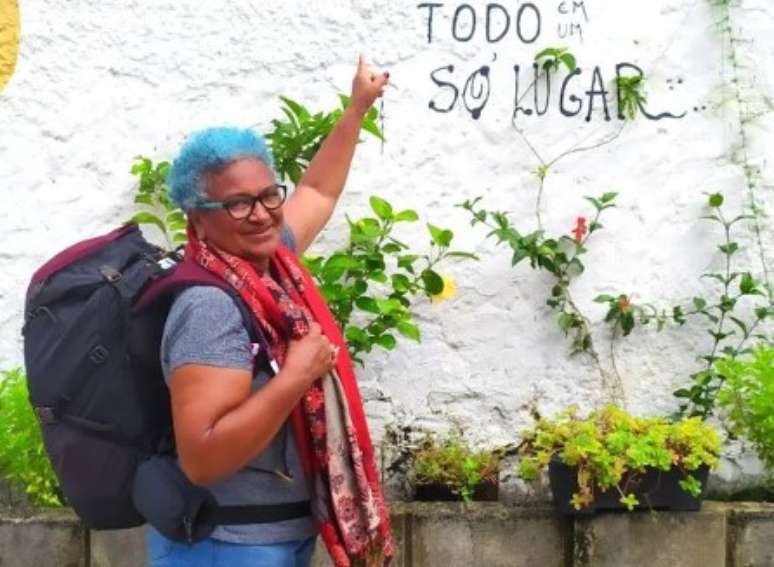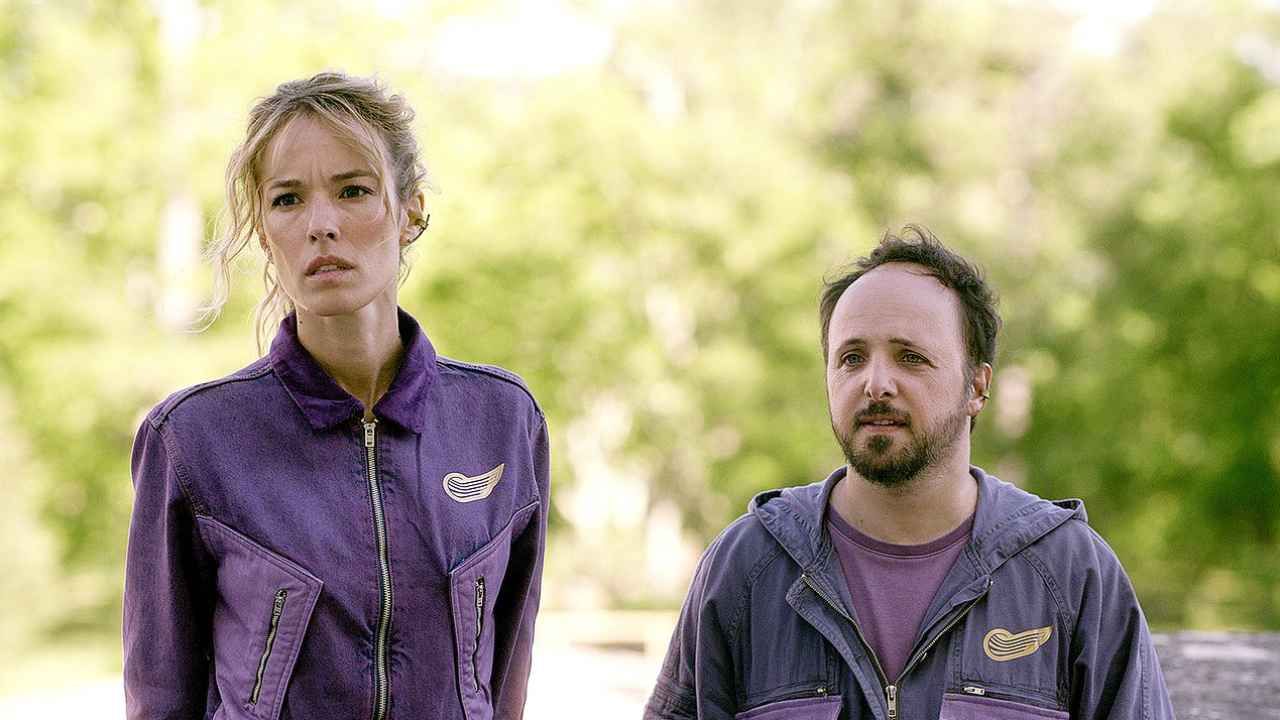At the age of 63, Josefa Feitosa has already visited more than 56 countries in Europe, Africa, Asia and South America without speaking a language other than Portuguese
After 35 years of service as a social worker, of which almost 29 in a women’s prison in Ceará, Josefa Feitosa, 63, retired, shared his possessions with his children and left home with a one-way ticket to Belém, Pará. It was the beginning of a journey that lasted just under seven years, with passages through 56 countries of the globe and many stories.
The first expeditions were by boat. From Belém to Santarém, then to Manaus. From the north, passing through the southeast and the south of Brazil, Josefa embarked for Europe. You started in Portugal and haven’t stopped since, with passages through Africa, Asia and South America.
“I looked at a lot of travel magazines, so I made a list of 20 countries I didn’t want to die without seeing,” she recalls when she notes that she started saving in 2008, eight years before the dream became a reality.
A little adventure, a little problem
Who sees Josefa continue his journey squandering courage at the age of 63 years can not imagine that one day he feared to undertake this style of life. But what the social worker did was follow the old mantra of going “in real fear.” And in her case, speaking no other language than Portuguese.
The way was to overuse the mimes in the necessary interactions, which most of the time worked. Until an incident in Munich, Germany, one of the 15 European countries she has visited: the woman from Ceará got lost.
The social worker had the help of a colleague to catch a train to Salzburg, Austria, the scene of the classic “A Noviça Rebelde” that she had longed to see. “She puts [as informações] in German so I could show it to the guard, so far so good. I stood where they said the train would stop, but it stopped at another platform and I was desperate. I started crying, I couldn’t say anything. I would approach the guard and say, “I am Brazil.” And nothing,” she recalls.
The impasse was resolved only when a Portuguese appeared and summoned a Brazilian from Minas Gerais who gave her the worst news: there was no more train for that day. Thanks to her countryman, Josefa found refuge: she spent four days in Monaco, went to her sister’s house in Poland and was advised to study English. She was referred to a job as a nanny in Ireland and her social worker enrolled her in a course which allowed her to spend over a year in Europe.
“I studied little and learned enough,” she admits, revealing that she wasn’t the most assiduous student in the class. “When I felt I couldn’t get lost, I dropped out of school and went traveling.”
married to the world
It is with this detachment that Josefa tells her peregrinations. Grown children, grown grandchildren, single, she only moved on to fulfill herself. But not always alone.
She makes friends and colleagues wherever she goes and experiences love stories, such as the Spaniard, who came to visit her in Brazil when she was with his family, and the sailor, who had already been around the world three times and encouraged her to do the same with a small roadmap of suggestions. “I also met someone in Cambodia, we did Cambodia and Vietnam together,” she says.
“But lately I’ve been very lonely. (…) I’m married to the world.”
Without closing herself off to new stories, Josefa says that violence, especially the femicide rates, scare her. “Like it or not, I’m just one person. I’ve been afraid of men lately,” she points out while acknowledging that there are also vulnerabilities in the lifestyle she’s chosen.
Age is not a barrier
Black woman and citizen of the world, as she defines herself on her Instagram profile open to collaborations, Josefa is no stranger to the prejudices that cross the oceans. For her, however, ageism was the strongest expression.
“I’ve already arrived at a hostel that didn’t accept me because I was over 40,” he points out. Episodes like this give even more meaning to its purpose of showing that women, especially those over 60, still have a life to live beyond caring for their families.
Josefa specifies: she loves her children and her nephew. She simply does not see this love as an opponent for her dreams of her.
“I try to show women my age that we have to leave this little box they call home.”
She defends it by recalling that mature women sometimes face situations ranging from abandonment by their husbands to empty nest syndrome, a feeling that strikes them when their children leave the house.
“There are so many things… When that time comes [de maturidade]go play, time to hit the playground,” he advises. In his script, the game has enough stamina for up to six hours on the trail, like it did around Ecuador’s Quilotoa Volcano last year.
a time passenger
There are possible parallels with the career she has made in prisons and with today’s freedom of not being bound anywhere, but Josefa does not cling to these clichés. She says that since she was a child, in her hometown, Juazeiro do Norte, she had the dream of being a traveller.
“I’ve always really wanted to travel. I grew up in a city where I saw a huge amount of people coming and going from that place because of religious tourism – there are three pilgrimages a year pulling people on buses, ara sticks. .. And when I was little my favorite ride was watching the train arrive, I said I wanted to be a passenger”.
It was at 17 that he took that train and went to Fortaleza without looking back. Her plan was to study – and she Josefa studied – but she was involved in student movements where she was involved in politics and she traveled a lot.
At that time he was living in a republic, in a boarding school and he thinks that the taste he got for living in hostels and other shared lodgings as a nomad came from there. She doesn’t need a home or material possessions, as everything she needs fits in the 40-litre handbag she uses to travel the world.
“I take very few clothes because I’m always changing the weather,” she comments. “I have a cold kit and then when I get there, I always buy clothes at thrift stores, cheap clothes. What else I have is a blouse, underwear. I never take sanitary material because I buy it where I get to,” she says.
fear has lost strength
When she shared with her three children that this was how she intended to enjoy the next few years, Josefa faced the expected calls for her to give up on that idea. “My daughter said, ‘it’s too risky, we’re black, prejudice’, but I didn’t believe in anything at all.” The daughter in question is the anthropologist Isabel Accioly, known for her work on race relations and whiteness.
But Josefa didn’t listen and, in the end, she believes that the distance has also been positive for family relationships, since she has begun to interfere less in the life of her children. Over her time they have also become accustomed to the profile of her mother.
“When I left, I got a phone call every day. Suddenly, a month later, I got a phone call. Two months later, no one remembered me anymore,” he laughs. Even on distant journeys, she keeps in touch with her offspring and her only grandchild, with whom she used to exchange letters.
Source: Terra
Ben Stock is a lifestyle journalist and author at Gossipify. He writes about topics such as health, wellness, travel, food and home decor. He provides practical advice and inspiration to improve well-being, keeps readers up to date with latest lifestyle news and trends, known for his engaging writing style, in-depth analysis and unique perspectives.








